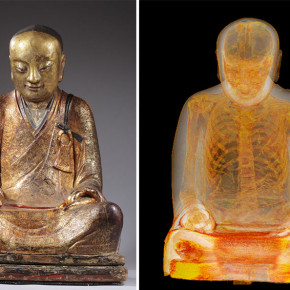Full 4-year PhD scholarship for Chinese students to research with us at Maastricht University
The China Scholarship Council (CSC) will fund 150 PhD projects at Maastricht University over the next 4 years, and this year we are advertising for a PhD researcher to join our TRANSFORM project team! We are seeking excellent candidates from mainland China to develop their own PhD project in Criminology or Criminal Law related to the topic outlined below. The project will be supervised by Dr Roland Moerland and myself and will be housed in the faculty of law. The project outline will be up on this page soon, and more information about the scholarship opportunity and the application roadmap can be found here.
A few things to note:
- Being invited to develop a proposal is not a guarantee that you will be granted a scholarship. Ultimately the project+the candidate are judged from the pool of all applicants to the programme. However, with so many scholarships available, a good project and a good candidate has a very good chance.
- You must develop your own project on this theme. Dr Moerland and I can comment, but we cannot do the project proposal for you. It is mostly through the quality of the proposals that we select our candidate.
- Both Dr Moerland and I have a strong preference for criminology projects, it is our specialty, but we will consider a great criminal law project.
- Project proposals must be complete before the start of January 2022.
If you are interested and believe you are qualified, please email me: d.yates@maastrichtuniversity.nl
And now, the project outline:
Antiquities, Fossil, and Wildlife Crime in China: Causes, Contexts, and Policy Responses
Area of Research:
Criminology, Criminal Law, and Criminal Justice
Research Institute:
Maastricht Institute for Criminal Sciences
Reference publications:
Mackenzie, S., N. Brodie and D. Yates (2019) Trafficking Culture: New Directions in Researching the Global Market in Illicit Antiquities. London: Routledge.
Yates, D., et al. (2019) Illicit Trade in Cultural Goods in Europe: Characteristics, criminal justice responses and an analysis of the applicability of technologies in the combat against the trade. Report. Directorate-General for Education, Youth, Sport and Culture, European Commission. Mackenzie S., A. Hübschle and
D. Yates (2020) Global Trade in Stolen Culture and Nature as Neocolonial Hegemony. In The Emerald Handbook of Crime, Justice, and Sustainable Development.
Yates, D., Mackenzie, S. and E. Smith (2017) The Cultural Capitalists: Notes on the Ongoing Reconfiguraiton of Trafficking Culture in Asia. Crime Media and Culture 13(2): 245–254.
Mackenzie, S. and D. Yates (2017) What is Grey about the “Grey Market” in Antiquities. In The Architect of Illegal Markets: Towards and Economic Sociology if Illegality in the Economy.
Faculty Research Program(s):
o Global Justice
o Globalising Markets
o Cross-border Cooperation and Mobility
Chinese Government Sectors for Talent Development:
三、人文与社会科学领域 / Humanities and Social Sciences
全球变化与区域响应 / Global Change and Regional Response
人类活动对地球系统的影响机制 / Human Activities and Their Impact on the Earth System
Overview of Topic:
We wish to support a PhD researcher interested in criminological research (causes and modus operandi) and criminal law research (regulation and sanctioning) into the illicit trafficking of cultural objects, fossils, and/or collectable wildlife from, to and through China. Of particular interest would be projects related illicit commodities flow, the link between this form of crime and climate change, and/or development, and the relationships between different actors in trafficking networks within the framework of research into white-collar crime. They will work in conjunction with the ERC-funded TRANSFORM Project to incorporate Asia generally and China specifically into our greater research on the networks involved in trafficking rare and culturally significant objects. They will have the benefit of drawing on the work coming from TRANSFORM’s other regional foci (Southern Africa, the Pacific, The Americas) for comparison and support, while developing their own geographic research line.
Methodology:
The PhD researcher will use criminological, legal, and sociological research techniques, including but not limited to document and database study, observation, interviews, ethnography, policy comparison and evaluation, and case study analysis.
